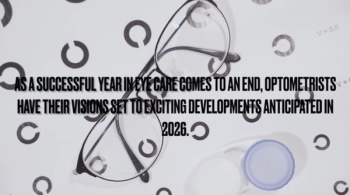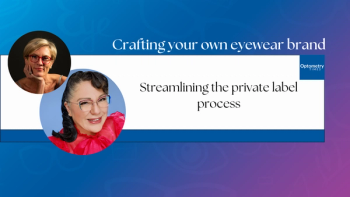
How a newly-discovered gene affects myopia
Researchers at Columbia University Medical Center recently discovered a gene that causes myopia in people who spend a lot of time reading or doing other “nearwork” throughout their childhood. The study was published in PLOS Genetics.
New York-Researchers at Columbia University Medical Center
The researchers utilized a database of approximately 14,000 people and found those with a specific variant of a gene called APLP2 were five times more likely to develop myopia in their teens if they read one or more hours per day in their childhood. Those who carried the APLP2 risk variant but spent less time reading had no additional risk of developing myopia.
“We have known for decades that myopia is caused by genes and their interactions with environmental factors like reading and nearwork, but we have not had hard proof,” says the study’s lead investigator, Andrei Tkatchenko, MD, PhD. “This is the first known evidence of gene-environment interaction in myopia.”
Optometry Times Chief Optometric Editor Ernie Bowling, OD, FAAO, says the study is a really good step for myopia research.
“It’s been known for some time that myopia is influenced by genetics, but this study, like the author says, is the first that shows both genetics and environment can influence myopia,” he says. “And the increase in the number of myopes is steadily rising as noted in the paper.”
“There are some big grains of salt that we need to keep in mind. This study wants to be more impactful than what’s really there,” says Donald O. Mutti, OD, PhD, E.F. Wildermuth Foundation Professor in Optometry at The Ohio State College of Optometry. “They’ve certainly gotten an interesting gene here, but it doesn’t solve the problem at all.”
How does APLP2 cause myopia?
Researchers don’t yet know how the genetic variant of the APLP2 gene causes myopia, but they think it may increase the amount of APLP2 protein produced in the eye, causing the eye to undergo excessive elongation.
“By reducing the level of APLP2 in the eye, you can reduce susceptibility to environmentally induced myopia,” says Dr. Tkatchenko. “This gives us an opportunity to develop a therapy to prevent myopia in everyone, regardless of the APLP2 variant they carry.”
But researchers don’t know how to reduce APLP2 levels in humans, so developing a therapy could take years. The therapy would be most effective in young children before the eye has started to elongate and develop myopia.
Dr. Tkatchenko envisions identifying kids with genetic risk factors as they enter school-but there are probably hundreds of genes that can cause myopia and only 25 candidates have been identified. And the high-risk variant of APLP2 occurs in just on percent of the population.
“There are 40 or more variants that have already been described that are related to myopia,” Dr. Mutti says. “The problem with genetics right now is that when we put a lot of these variants together, the percentage of myopia that we can explain is very low. Molecular genetics has been really good at finding a bunch of genes of small effect-a lot of genes with very little effect.”
Dr. Mutti says that because the risk allele occurs in only one percent of the population, there would be little reason to screen for it.
“What they’ve got is another piece of an important puzzle of trying to identify genes that are related to regulating eye growth, what are they doing, and how they work together, but it’s still a really big puzzle,” he says. “If only one percent of the population has this allele, this is a pretty small piece in this puzzle.”
What you can do to prevent myopia today
While conducting gene screenings on school-aged children and a therapy may be years away, eyecare providers can help prevent myopia in children now by recommending young patients spend time outdoors every day.
“So what does it mean to our patients? Get the children off their video games and outside at least two hours every day,” says Dr. Bowling. “I shudder to think what that percentage of myopes will be considering how everyone is staring at their smartphones and tablets all day.”
Dr. Mutti has concerns about the study’s design and connection to reading and nearwork and myopia. For one, the study based the level of reading on one question-parents of children aged 8.5 were asked how many hours their child typically reads for pleasure.
“What are the other nearpoint activities that are missing here? TV, studying, use of electronic devices. This is not a very strong, sophisticated measurement of kids’ behavior to me,” he says.
The second problem is that the study’s design perpetuates a common myth.
“This reinforces the popular stereotype that nearwork is bad for your eyes-back away from the TV, put down the tablet. There are a lot of reasons not to bury yourself in a device. But we
Overall, Dr. Mutti says this study doesn’t change much.
“If clinicians are talking to parents, and they’re wondering does this fundamentally change what we’re doing with our kids-it doesn’t,” he says. “I don’t think it has a lot of evidence that says our view is now fundamentally different and we should be doing something different with our kids.”
© Maria Uspenskaya/Shutterstock.com
Newsletter
Want more insights like this? Subscribe to Optometry Times and get clinical pearls and practice tips delivered straight to your inbox.













































.png)


